Related Research Articles

Alan Mathison Turing was an English mathematician, computer scientist, logician, cryptanalyst, philosopher, and theoretical biologist. Turing was highly influential in the development of theoretical computer science, providing a formalisation of the concepts of algorithm and computation with the Turing machine, which can be considered a model of a general-purpose computer. He is widely considered to be the father of theoretical computer science and artificial intelligence.
A countertenor (also contra tenor) is a type of classical male singing voice whose vocal range is equivalent to that of the female contralto or mezzo-soprano voice types, generally extending from around G3 to D5 or E5, although a sopranist (a specific kind of countertenor) may match the soprano's range of around C4 to C6. Countertenors often have tenor or baritone chest voices, but sing in falsetto or head voice much more often than they do in their chest voice.
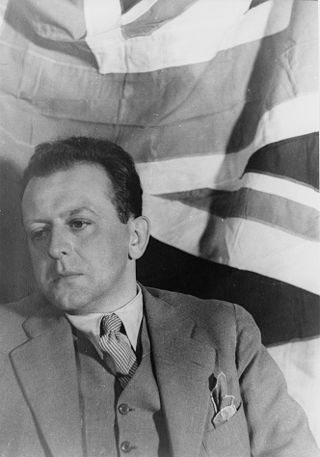
Colin Carhart McPhee was a Canadian-American composer and ethnomusicologist. He is best known for being the first Western composer to make a musicological study of Bali, and developing American gamelan along with fellow composer Lou Harrison. He wrote original music influenced by that of Bali and Java, decades before such compositions that were based on world music became widespread.
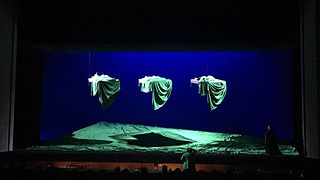
A Midsummer Night's Dream, Op. 64, is an opera with music by Benjamin Britten and set to a libretto adapted by the composer and Peter Pears from William Shakespeare's play, A Midsummer Night's Dream. It was premiered on 11 June 1960 at the Aldeburgh Festival, conducted by the composer and with set and costume designs by Carl Toms. Stylistically, the work is typical of Britten, with a highly individual sound-world – not strikingly dissonant or atonal, but replete with subtly atmospheric harmonies and tone painting. The role of Oberon was composed for the countertenor Alfred Deller. Atypically for Britten, the opera did not include a leading role for his partner Pears, who instead was given the comic drag role of Flute/Thisbe.
Adam Gopnik is an American writer and essayist. He is best known as a staff writer for The New Yorker, to which he has contributed non-fiction, fiction, memoir, and criticism since 1986.
James Thomas Bowman was an English countertenor. His career spanned opera, oratorio, contemporary music and solo recitals. Arguably, he was after Alfred Deller the most important countertenor in the 20th century revival of the voice part. He combined early and baroque repertoire with contemporary work, becoming recognised for his portrayal of Oberon in Britten's A Midsummer Night's Dream and performing world premieres.

Theodora is a dramatic oratorio in three acts by George Frideric Handel, set to an English libretto by Thomas Morell. The oratorio concerns the Christian martyr Theodora and her Christian-converted Roman lover, Didymus. It had its first performance at Covent Garden Theatre on 16 March 1750. Not popular with audiences in Handel's day, Theodora is now recognised as a masterpiece. It is usually given in concert, being an oratorio, but is sometimes staged.
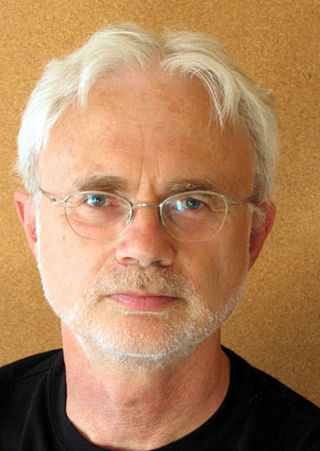
El Niño is an opera-oratorio by the contemporary American composer John Adams. It was premiered on December 15, 2000, at the Théâtre du Châtelet in Paris by soloists Dawn Upshaw, Lorraine Hunt Lieberson and Willard White, the vocal ensemble Theatre of Voices, the London Voices, La Maîtrise de Paris, and the Deutsches Symphonie-Orchester Berlin, with Kent Nagano conducting. It has been performed on a number of occasions since, and has been broadcast on BBC Television.

Solomon, HWV 67, is an oratorio by George Frideric Handel. The anonymous libretto – currently thought to have been penned by the English Jewish poet/playwright Moses Mendes (d.1758) – is based on the biblical stories of the wise king Solomon from the First Book of Kings and the Second Book of Chronicles, with additional material from Antiquities of the Jews by ancient historian Flavius Josephus. The music was composed between 5 May and 13 June 1748, and the first performance took place on 17 March 1749, with Caterina Galli in the title role at the Covent Garden Theatre in London, where it had two further performances. Handel revived the work in 1759.
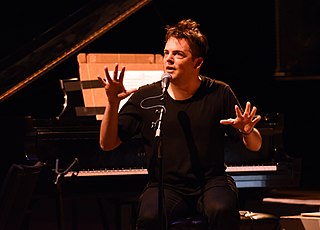
Nico Asher Muhly is an American contemporary classical music composer and arranger who has worked and recorded with both classical and pop musicians. A prolific composer, he has composed for many notable symphony orchestras and chamber ensembles and has had two operas commissioned by the Metropolitan Opera. Since 2006, he has released nine studio albums, many of which are collaborative, including 2017's Planetarium with Sufjan Stevens, Bryce Dessner & James McAlister. He is a member of the Icelandic music collective and record label Bedroom Community.

An Occasional Oratorio is an oratorio by George Frideric Handel, based upon a libretto by Newburgh Hamilton after the poetry of John Milton and Edmund Spenser. The work was written in the midst of the Jacobite rising of 1745–1746, the attempt to overthrow Handel's patrons the Hanoverian monarchy under George II and replace them with a Stuart restoration under Charles Edward Stuart, "Bonnie Prince Charlie". The Occasional Oratorio is unique among Handel's works which he labelled "oratorio" in that it does not tell a story or contain elements of a drama, but was intended as a defiant and patriotic rallying piece.

Matthew King is a British composer, pianist, and educator. His works include opera, piano and chamber music, and choral and orchestral pieces. He has been described by Judith Weir, Master of the Queen’s Music, as “one of Britain's most adventurous composers, utterly skilled, imaginative, and resourceful."
Bright Mass with Canons is a mass for choir and organ by the American composer Nico Muhly. It was written for the choir of Saint Thomas Church Fifth Avenue and its then music director and organist John Scott. The piece was premiered in New York City in February 2005 by the Choir of Men & Boys of Saint Thomas Church.
Iestyn Davies is a British classical countertenor.
Two Boys is an opera in two acts by American composer Nico Muhly, with an English-language libretto by American playwright Craig Lucas. The opera's story is based on real events in Manchester, England, in 2001 as described in a 2005 Vanity Fair article titled "You Want Me 2 Kill Him?"

The Corridor is a chamber opera composed by Harrison Birtwistle to an English language libretto by David Harsent. It premiered at the Aldeburgh Festival on 12 June 2009. The title refers to the corridor through which Orpheus and Eurydice passed as he was leading her from the underworld.
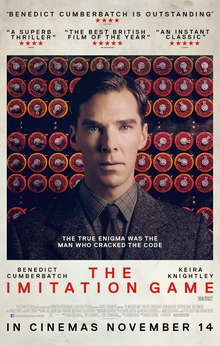
The Imitation Game is a 2014 period biographical thriller film directed by Morten Tyldum and written by Graham Moore, based on the 1983 biography Alan Turing: The Enigma by Andrew Hodges.
The Cello Concerto is a concerto for solo cello and orchestra by the American composer Nico Muhly. The work was commissioned by the Barbican Centre for the Britten Sinfonia and cellist Oliver Coates, to whom Muhly dedicated the piece. It was first performed on March 16, 2012 at the Barbican Centre by Coates and the Britten Sinfonia under conductor André de Ridder.
Mixed Messages is a single-movement composition for orchestra by the American composer Nico Muhly. The work was commissioned by the Philadelphia Orchestra and was premiered in Philadelphia on May 13, 2015 by the Philadelphia Orchestra under the conductor Yannick Nézet-Séguin.
A European Requiem is a composition for countertenor, baritone, mixed chorus, and orchestra by the Scottish composer James MacMillan. The work was commissioned by the Oregon Bach Festival, partially supported by an award from the National Endowment for the Arts. It was first performed by the countertenor Christopher Ainslie, the baritone Morgan Smith, the Berwick Chorus of the Oregon Bach Festival, and the Oregon Bach Festival Orchestra under the direction of Matthew Halls on 2 July 2016, at the Hult Center for the Performing Arts in Eugene, Oregon.
References
- 1 2 3 Muhly, Nico. "Sentences (2014)". Music Sales Group . Retrieved September 25, 2015.
- ↑ Ellis-Petersen, Hannah (June 6, 2015). "Nico Muhly takes on Alan Turing: 'No one wants a gay martyr oratorio'". The Guardian . Retrieved September 25, 2015.
- ↑ McKay, Sinclair (June 5, 2015). "We didn't want to make a sad gay oratorio': A new musical monologue attempts to get inside the mind of Alan Turing. Sinclair McKay meets its composer, Nico Muhly, and its star, Iestyn Davies" . The Daily Telegraph . London. Retrieved September 25, 2015.
- ↑ Ashley, Tim (June 7, 2015). "Britten Sinfonia/Davies/Muhly review – Turing tribute celebratory yet sorrowful". The Guardian . Retrieved September 25, 2015.
- ↑ Nepil, Hannah (June 8, 2015). "Nico Muhly's Sentences, Barbican, London — review". Financial Times . Retrieved September 25, 2015.